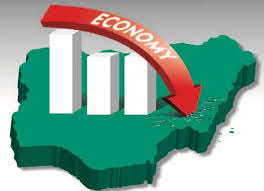Abuja
The Secretary-General of the Organisation of Petroeum exporting Countries (OPEC), Mohammed Barkindo on Monday declared that the organisation’s decision to cooperate with non-members in cutting crude production costs was transformative.
Barkindo said this in Abuja at the opening ceremony of the maiden Nigeria International Petroleum Summit (NIPS).
OPEC had made a decision for member countries to cut production when oil prices were low, to force a rise in the price of crude.
He said OPEC had embarked on one of the ”most innovative enterprises ever known in the history of oil” – the declaration of cooperation.
Barkindo said this innovation was a response to an unprecedented market turbulence which had a devastating effect not only in the industry but in the economies of OPEC member countries.
“Thankfully, a breakthrough came in the form of the declaration of cooperation.
“This was the culmination of an extensive consultation undertaken throughout 2016 with the aim of gaining consensus about the strategic urgency of bringing this market back to balance in a collective manner.
“If one word was to be used to describe the impact of the declaration, it would be ‘transformative’, a new player has emerged on the global oil scene, the OPEC and non-OPEC strategic partnership.
“Many didn’t think it would get off the ground; however, we have registered conformity in 2017 of 107 per cent across all the participating countries.
“I would like to use this platform to also announce our January figures of 133 per cent that would be released in a couple of hours in the OPEC secretariat,’’ Barkindo said.
According to him, the president is a credit in securing the adoption of the historic declaration of cooperation.
“On behalf of the entire OPEC family, I will like to express our deep appreciation for his open and cooperative stance. His willingness to use his good office, international respect and admiration to intervene at the heads of states level and his flexibility in reaching a consensus position behind closed doors.
“Nigeria is consistently regarded as one of the respected members of OPEC, particularly in the realm of consensus building,’’ he said.
In his welcome address, the Minister of State for Petroleum Resources, Dr Ibe Kachikwu, said to drive investment in the sector, the cost of producing crude was key.
“The reality is that today, if you cannot produce cheap cost oil, if you cannot diversify the processing of your oil; if you cannot look to internalising and externalising investment in the sector; if you cannot capture the requisite technological skills that are essential to help you operate efficiently, you are lost before you start.
“The challenge for oil companies has changed. Oil has got to provide the resources to power this country; jobs for our people and the operational environment that is transparent enough for others to take Nigeria serious.
“Oil has got to provide the technical and advanced skills sets that are essential for us to export people out in to other African countries, and to become investors in other African countries.
“My target is that over the next 10 years, Nigeria would produce an FPSO; Nigeria would become self-sufficient in its own power provision and Nigeria would gravitate from crude oil, as it where, to very refined, clean provision of fossils.’’
He added that in 10 years, he expected that Nigerian companies, entities and shareholders, would begin to move from 10 per cent today, to between 40 and 50 per cent of local investments.
He said opportunities abound in the sector after the launch of the 7Big wins two years ago, as the ministry had been able to change the funding capacity for the upstream.
“This has energised investors in the upstream sector. Now we are beginning to see projects like Egina, 15 billion dollara; Zabazaba, potential 10 billion dollars; Bonga, potential 10 billion dollara, and the likes.
“So many other investments put at over 40 billion dollars potential investments over the next five years, if we do the right thing, set the right models and set the right policies.
“That is very key and that is coming from a country where investments had runaway for nearly seven to 10 years,’’ he said.
On Niger Delta militancy, he said the ministry had been able to find a way of engagement that respects the communities, focus on their needs and take them serious.
“Not just as agitators, but indeed, as partners in the exploration of crude oil among others. A lot engagements to take place, a lot more work to be done, and I have given as much time.
“If we continue this and can focus on host communities, we can find the peace that is essential ultimately to be able to operate in this country without difficulties.’’
He said for the first time, issues of refineries have been addressed by the ministry, creating a model where target investments would go into the dilapidated refineries.
‘Egypt’s potential gas surplus can feed global LNG glut’
Egypt faces a possible over-abundance of natural gas after two Israeli companies proposed a $15 billion supply deal, raising the prospect that the Arab nation may turn its surplus into liquefied natural gas and export it to a market currently glutted with LNG.
Egypt was already expecting to become self-sufficient in natural gas by the end of this year with the start of Eni SpA’s giant Zohr field, Oil Minister Tarek El-Molla said last month. Noble Energy and Delek Drilling-LP said Monday they plan to supply around 64 Bcmg over 10 years to Egypt’s Dolphinus Holdings from Israel’s Tamar and Leviathan reservoirs, in a $15 billion export arrangement.
The most populous Arab country has facilities to turn gas into super-chilled LNG, which can be exported by ship. The global LNG oversupply is unlikely to end before the mid-2020s, the IEA forecast in October.
“It is possible that gas imported under this agreement will be directed towards domestic consumption or to the LNG plants to be liquefied and re-exported,” El-Molla said on Egyptian CBC television. “We have LNG plants, we have capacity that is not being exploited, so why not have a third party bring good?”
The Israeli deal is scheduled to start gas supplies to Egypt in 2020. By 2023, Delek has said it expects Zohr output will just meet Egypt’s demand and only for a limited time. Egypt’s gas demand in 2016 was 46.1 million tons of oil equivalent, while its production was 37.64 million tons, according to BP.
Source: Worldoil



